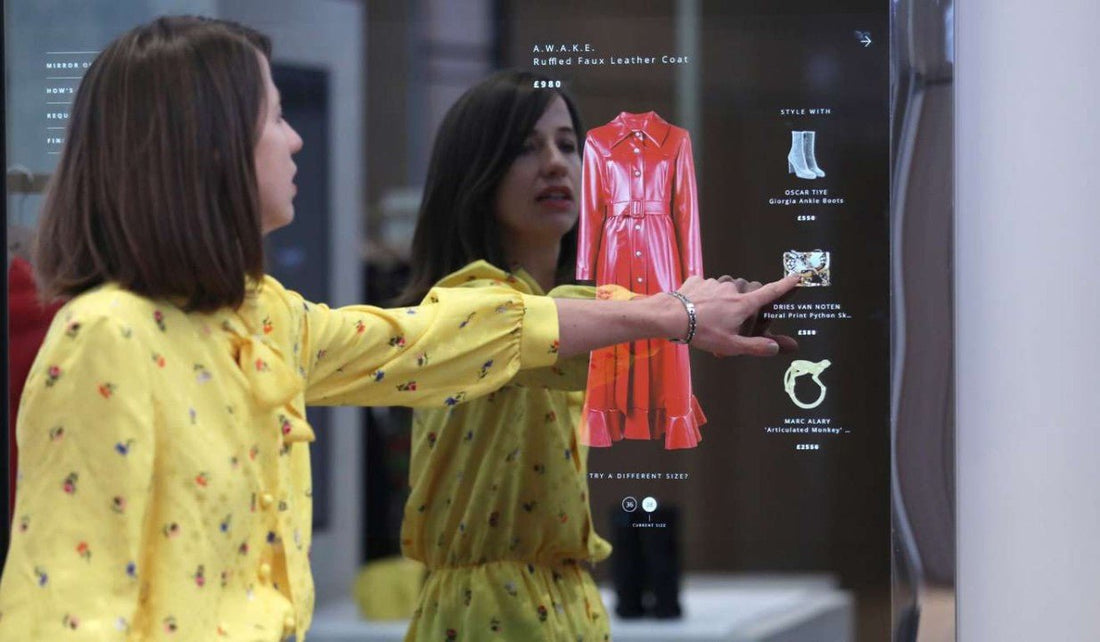
The Role of IT Support in Modern Fashion Business: Beyond Troubleshooting
Share
In today’s fast-paced and tech-driven fashion industry, IT support has evolved from a reactive troubleshooting function to a proactive, strategic pillar supporting everything from design and manufacturing to marketing and customer experience. Fashion businesses now rely on sophisticated technology infrastructures, whether for managing customer relationships, securing sensitive data, streamlining workflows, or integrating e-commerce platforms with inventory systems. Here, we’ll explore how IT support plays a critical role in modern fashion, focusing on key areas like data security, customer experience, productivity tools, and innovative tech adoption.
Data Security and Privacy: Safeguarding Brand Reputation
Fashion businesses handle a large volume of sensitive customer information, from payment details to personal preferences. Protecting this data is crucial, as breaches can erode customer trust and harm brand reputation. IT support teams implement robust security protocols, including secure access management tools like Okta, multi-factor authentication, and data encryption.
By actively monitoring systems and educating employees on cybersecurity best practices, IT support teams are essential in maintaining customer trust and ensuring compliance with data protection regulations such as GDPR. In the competitive world of fashion, where customer loyalty is paramount, data security has become a fundamental aspect of customer retention.

Enhancing Customer Experience through IT Support
The modern consumer expects a seamless online shopping experience, which includes smooth website navigation, fast loading times, and reliable payment systems. IT support teams work behind the scenes to ensure these experiences are flawless. They maintain and optimize websites, mobile apps, and online storefronts, ensuring that technical glitches don’t interrupt the shopping journey.
Moreover, IT support can directly impact customer service by empowering support staff with tools like CRM systems and AI-powered chatbots. These tools allow fashion brands to quickly respond to customer inquiries, track order statuses, and manage returns. With IT support continuously enhancing these systems, brands are better equipped to deliver a customer experience that is not only smooth but also personalized and efficient.
Boosting Productivity and Collaboration with Tech Tools
Fashion companies rely on collaborative tools to connect teams across design, marketing, sales, and retail operations. Here, IT support provides expertise in integrating and managing platforms like MS365, Jira, and Confluence. These tools streamline workflow by enabling real-time communication, project tracking, and document sharing.
By ensuring that these tools are well-integrated and accessible, IT support teams help fashion businesses stay agile and adaptable. This connectivity is particularly important in an industry where trends change rapidly and teams need to respond to shifts without delay. IT support’s role in optimizing productivity tools ultimately fuels the brand’s ability to innovate and stay ahead of trends.
Adopting and Managing New Technologies
With the rise of AI, augmented reality (AR), and virtual reality (VR), fashion brands are embracing technologies that were once seen as futuristic. These technologies have exciting applications in fashion, from AI-driven design processes to AR-based virtual fitting rooms, which allow customers to try on clothes digitally.
IT support plays an instrumental role in adopting these innovations. They assess system requirements, ensure compatibility, and troubleshoot issues that arise in the implementation phase. Additionally, IT support teams often work closely with vendors to maintain these systems, ensuring that they continue to operate smoothly after launch. This proactive approach allows brands to leverage technology for a more interactive customer experience, strengthening customer loyalty and setting the brand apart from competitors.
Sustainability and Supply Chain Management
Sustainability is increasingly important in the fashion industry. Many brands are adopting sustainable practices, from eco-friendly materials to transparent supply chains. IT support aids these efforts by implementing systems that track materials and monitor production efficiency, providing transparency throughout the supply chain.
For example, by integrating e-commerce platforms with inventory systems, IT support can help brands monitor their stock in real time, reducing waste and optimizing production schedules. Additionally, advanced data analytics and IoT sensors enable brands to monitor resource consumption closely, further supporting sustainable practices. With IT support, fashion brands are not only more efficient but also more aligned with eco-conscious consumers’ values.
Creating a Resilient, Scalable Infrastructure
As fashion brands grow, their technology needs expand. A resilient IT infrastructure is vital for scaling operations, especially when brands expand into new markets or launch additional online services. IT support teams are responsible for ensuring that this infrastructure can handle increased demand without compromising performance.
From cloud migration to network management, IT support enables fashion brands to scale while maintaining flexibility. With a solid IT foundation, brands are better equipped to meet peak demands, such as holiday sales, without experiencing system overload or downtime. This scalability helps fashion businesses stay competitive, delivering consistent service across multiple channels.




